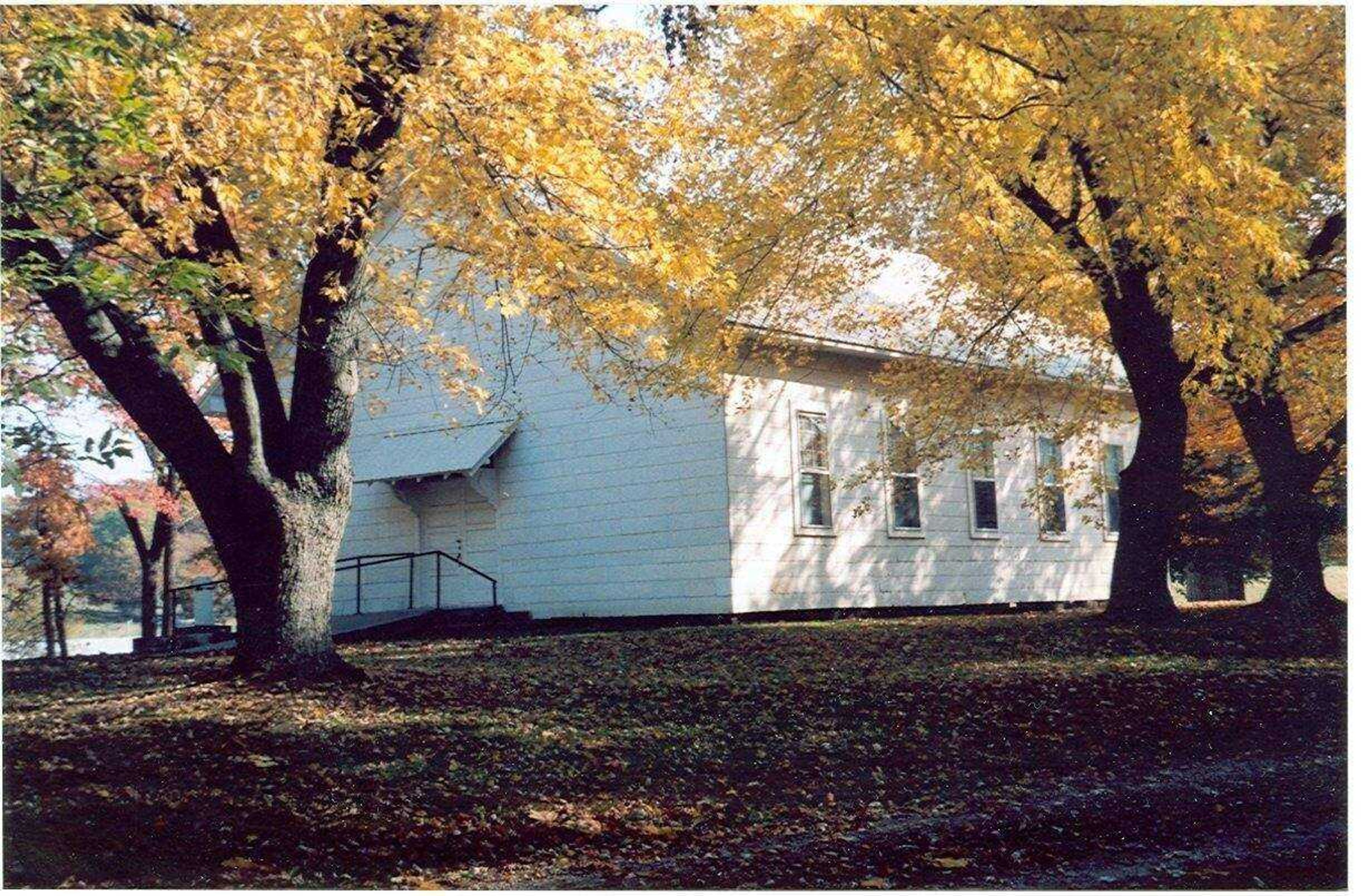Explore Apple Creek Presbyterian Church's serene setting
Southeast Missouri is defined by its special people and special places. One of the special places in our region is Apple Creek Presbyterian Church, at the intersection of County Roads 532 and 543, half a mile east of Pocahontas. This sacred place brings together a wonderful simplicity and a quiet beauty. And, it is one of the most historical sites in Southeast Missouri...
Southeast Missouri is defined by its special people and special places. One of the special places in our region is Apple Creek Presbyterian Church, at the intersection of County Roads 532 and 543, half a mile east of Pocahontas.
This sacred place brings together a wonderful simplicity and a quiet beauty. And, it is one of the most historical sites in Southeast Missouri.
Founded in May 1821 (the year of Missouri statehood) by two groups of Scotch-Irish Presbyterians from North Carolina, the historic church is the third oldest Presbyterian church west of the Mississippi River. The founding minister, the Rev. Salmon Giddings, suggested the construction of a church that could serve and connect the farm families around Shawneetown to the north and Indian Creek to the east.
The first church was built in 1822 of logs cut on the site. The log cabin church was replaced by a large frame structure in 1831 to accommodate the growing congregation that by 1834 was the largest Presbyterian church in Missouri, outside of St. Louis, with more than 200 members. The current church was erected in 1873 and remains unaltered, without such modern conveniences as electricity and running water.
When the famous abolitionist Elijah Lovejoy visited in 1835 he compared the Sunday service at Apple Creek to a "gathering of the Highland clans" of Scotland where at "the first sound of the bugle, every brake, and hollow, the shieling of every hill, would pour forth its tide of living beings to swell the number of the gathering multitude." He described the church as "deeply embowered in the woods," solitary and quiet, but at the appointed hour, "as if by magic," members arrived from every corner, through narrow pathways of overhanging limbs and vines, to fill the structure to capacity.

Lovejoy was impressed with the congregation, which he described as "universally and uniformly attentive and devout." He wrote that the world may call these people poor and obscure, but asked, "If this be poverty and obscurity, then what are this world's riches and splendor?"
Members of these attentive and devout gatherings include names significant to the early development of Cape Girardeau County: Abernathy, Colyer, Cotner, Hensley, Hope, Henderson, Lewis, Oliver, McNeely, McLain, Thompson, Shoults, Sides and Wilson. The roots of these families are deeply imbedded in the history of this region.
Although the congregation was dissolved in 1962, the adjacent cemetery, which dates to 1822, continues to serve the region, with about 1,000 identified grave sites. A distinguishing feature of the cemetery is the large number of dedicatory passages and testimonials. An area of unmarked graves calls attention to the ravages of the cholera epidemic of 1833. There is much here, and we are fortunate that since 1962 the site has been so carefully preserved and administered by individuals whose last names are on the original church rosters. In this age of movement and relocation, Apple Creek Presbyterian Church and Cemetery remains a reassuring connection to our past.
Go there on an autumn morning and watch the sun brighten the surrounding fields and hill sides. The setting is frequently made special by sounds of red-tailed hawks, the sight of soaring turkey buzzards and the distant chatter of wild turkeys. It is a special place, for many reasons.
One of the most enjoyable weekends of the year is the fourth Sunday in April when St. John's Evangelical Lutheran Church in Pocahontas hosts its kettle-cooked beef dinner, followed by a visit to Apple Creek Presbyterian Church and their special "gaslight sing." The smell, the sounds and the setting are rare opportunities to connect with our past. I recall a warm spring evening, when, with the gaslight sing underway, I walked across the cemetery and listened to the music coming from the softly lit church. It was a special moment.
In addition to the April gaslight sing, the Apple Creek Memorial Association holds an annual church service on the third Sunday in May and Vesper Service on the third Sunday in September. These events are open to the public.
Apple Creek Presbyterian Church and Cemetery is a special place. It helps define us and remains as a quiet monument to those who built this region, and this nation.
Frank Nickell is the director of the Center for Regional History at Southeast Missouri State University. He studies the history of Southeast Missouri and the people in it. You can also hear his award winning program, "Almost Yesterday" at 7:49 a.m., Wednesdays on KRCU, 90.9 FM and KSEF, 88.9 FM, Farmington.
Connect with the Southeast Missourian Newsroom:
For corrections to this story or other insights for the editor, click here. To submit a letter to the editor, click here. To learn about the Southeast Missourian’s AI Policy, click here.











